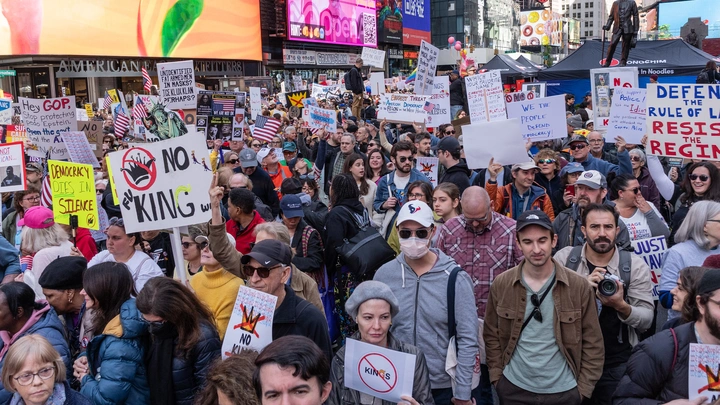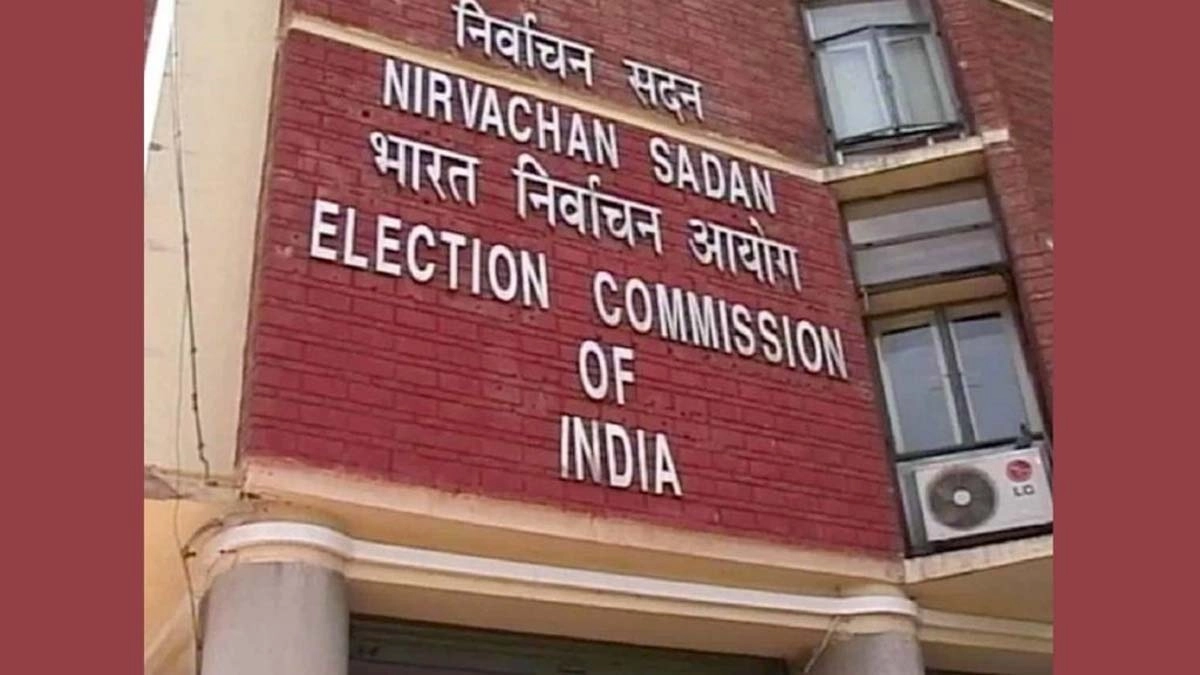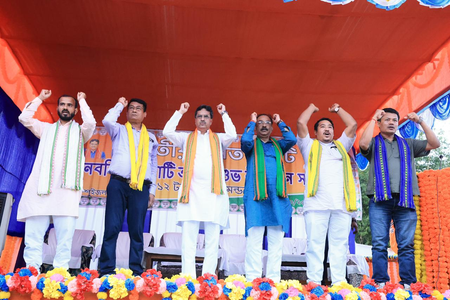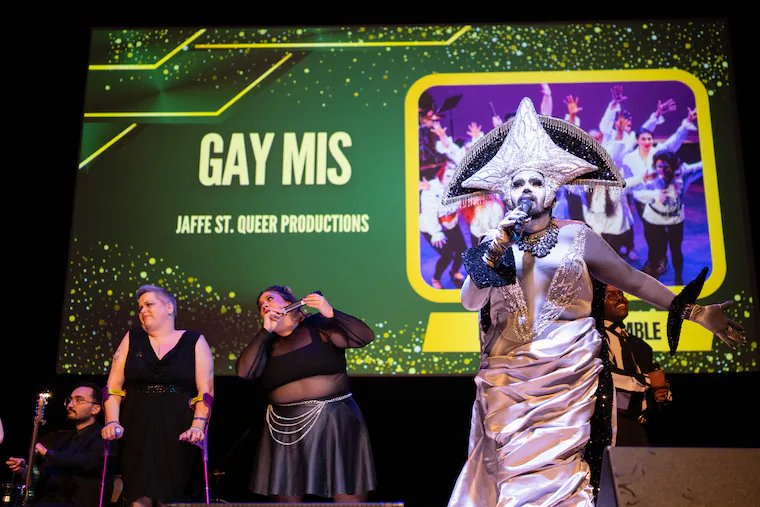Copyright Cable News Network
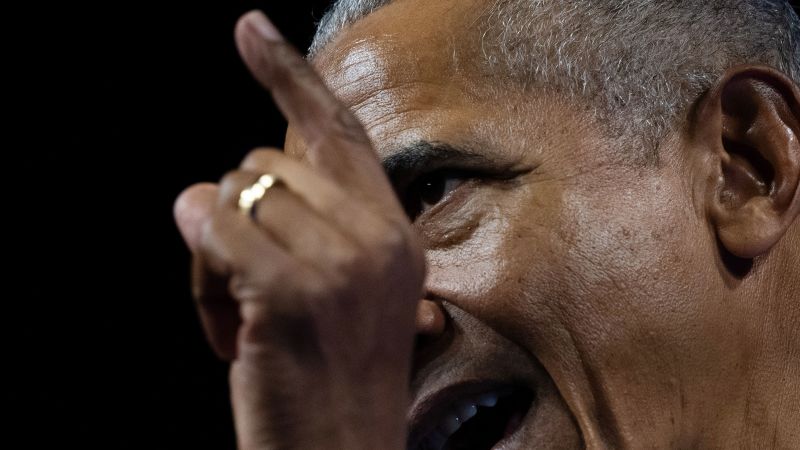
Barack Obama used to be confident America would survive Donald Trump. He’s not so sure anymore. The 44th president can still draw a crowd of thousands or dial Gavin Newsom’s cell phone to strategize about the California governor’s redistricting push. But friends who talk to him say it’s become clear that eight years out of the White House, darkness and anxiety have crept in on Obama’s message of hope and change. After deliberately stepping back during the Biden years — while remaining the party’s biggest fundraiser even then — Obama and his aides are reworking his longstanding strategy of minimizing his public presence to allow the next generation of Democrats to emerge. Trump’s moves to block Democrats from power since his return to the White House and his calls to indict or shut down liberal institutions might, Obama fears, deny that next generation the chance. “The harm is so profound that this calls for both a different approach generally, and a different involvement specifically by President Obama,” said Eric Holder, the former attorney general who described the mindset of his longtime friend. “If we are focused, if we’re willing to engage, if we are willing to do the work, the nation and our democracy can survive this,” Holder told CNN. “There will be damage done along the way — there’s no question about that. We won’t win every battle.” Or as Obama tends to put it himself in private conversations, according to several who’ve spoken with him: “If you have convictions and they’re not being tested, then it’s just fashion.” Hitting the campaign trail for moderate gubernatorial candidates, as Obama is scheduled to do in back-to-back stops on Saturday for Mikie Sherrill in New Jersey and Abigail Spanberger in Virginia, is the easy part for the former president. It’s what to do every other day of the year, and each of the years to come, that he’s been struggling with, according to CNN’s conversations with two dozen top Democratic officials and operatives, as well as several friends who have spoken with the former president since Trump returned to office. Obama declined an interview for this story. Filling a leadership void in the party Once an avatar of youth, Obama is now 64, so long out of the White House that a child born the day before he was first elected president will be eligible to vote in next year’s midterms. America is not the united country without red states or blue states that Obama suggested it was 21 years ago at the Democratic National Convention. Nor is it the post-racial society some hoped for with the election of the first Black president. People who know Obama say he has been surprised and appalled in how many of the rich people who now form his social circle have made concessions to Trump. He’s reaching out to business and other institutional leaders, urging them not to bend to the current administration even if it helps their bottom lines. Obama is preparing for the prosecutions Trump is encouraging his Justice Department to pursue. He’s mulling whether to hold to tradition and invite Trump among all the other living presidents to the scheduled spring opening of his presidential center in Chicago. Presumably, he would be rebuffed. But Trump, always looking for a moment to tear into Obama and Democrats, could accept the invitation. More on Obama’s mind is what to do and say if the Supreme Court strikes down the Voting Rights Act entirely after several justices recently appeared open to at least weakening the landmark law. Or if tensions rise with the immigration agents and National Guardsmen deployed to American cities. Or if Trump makes real moves to again try to stay past the end of his term, something Trump has downplayed recently. “He doesn’t want to be the leader of the party — he was the leader of the free world. But it feels like sometimes he’s got to speak his mind,” another person who knows Obama well told CNN. “No one expected this: this bad, this ugly, literally the rule of law in play every day.” He senses the politics of his party may be leaving him behind but also wonders if the Democratic Party’s problems are so deep that it needs his help to steer it back to relevance. To a demographic of Democratic voters and media figures — embodied in many ways by Marc Maron’s having Obama as a return guest for the final episode of his long-running podcast earlier this month — the former president is forever their nostalgia for a time when intellectualism and progressivism reigned and the world made more sense to them. “People who are barely old enough to remember his presidency make TikTok fancams about the guy,” said Rob Flaherty, a strategist steeped in social media and influencing, adding, “in this moment, Democrats need to make the case for liberal democracy, and he’s one of the most effective voices we could have.” Spanberger and Sherrill have campaigned with some of potential contenders for the Democrats’ 2028 nomination but have not appeared with the party’s last two nominees: former President Joe Biden or former Vice President Kamala Harris. Both, though, asked specifically for Obama. The Obama allure among Democrats remains so high that even people close to him were surprised how much Harris in her otherwise score-settling post-election book let him off the hook for initially holding off in backing her last summer after Biden dropped out of the race. In California, the strategists working on Newsom’s effort to redraw US House maps didn’t test Biden’s or Harris’s appeal, according to people familiar with the effort. Bill and Hillary Clinton registered a little, and so did a few others like Rep. Alexandria Ocasio-Cortez, but no one matched Obama’s ability to get Democrats revved up and independents willing to listen. Obama switched his position from supporting independent redistricting to backing California’s move to retaliate against Texas Republicans trying to produce five more GOP-held seats at Trump’s demand. “If there’s one thing that our entire nation has come to understand about President Barack Obama, it’s that he cares deeply about democracy and decency and the decorum that comes with leading such a diverse and inspired nation,” said Isaac Bryan, an assemblymember from South Central Los Angeles. The 33-year-old Bryan, who wore a “Hope” T-shirt in his first driver’s license photo, said he knows Obama’s appeal is running up against time. “We all have to accept when we’re not the coolest anymore,” Bryan told CNN. “For this new generation, President Obama doesn’t have the same swagger that he did for my generation and the ones just above me.” Obama did not endorse Zohran Mamdani. Aides say his summer phone call to the Democratic nominee for New York City mayor was meant to validate the candidate to those suspicious of the 34-year-old democratic socialist and embrace his own role in guiding the next generation. When word of the call spread, some of Mamdani’s most hardcore supporters started posting about how just talking to Obama was proof that Mamdani must have been co-opted. The criticism surprised not just Obama’s orbit, but Mamdani’s. “There’s always going to be a small subset of people that treat politics like a cool indie band and they feel like they’re kind of uncool when more people discover them,” said Jabari Brisport, a fellow Democratic Socialists of America member of the New York legislature and close Mamdani friend. “It’s not always that Obama’s calling you so you’re selling out. No, Obama has for the first time had to congratulate a socialist. That’s movement on Obama’s side.” A 2024 campaign misfire For Obama and his detractors, last year’s campaign stands as a measure of what he doesn’t get and what can go wrong. Behind the scenes, he had been asked by Harris’ campaign to push Black celebrities like Jay-Z and LeBron James to support her. His comments at a stop in Pittsburgh on the way to his first rally for her, letting loose on young Black men for not supporting a Black woman, immediately blew up. “I’m speaking to men directly — part of it makes me think that, well, you just aren’t feeling the idea of having a woman as president, and you’re coming up with other alternatives and other reasons for that,” Obama said, adding that “seems to be more pronounced with the brothers.” For days, the campaign was fielding angry responses, including from popular radio host Charlamagne tha God, even as they watched Republican online networks heighten the tension for their own ends. Jay-Z never did endorse, blaming the indictment of fellow rapper Sean Combs for putting too much heat on him. His stump speech for future rallies was quickly reworked after Pittsburgh. Lessons were taken for the rest of the campaign, but also for what came next, starting with a post-election speech at the annual Democracy Forum hosted by his foundation in which he lingered on how to push back at “times, potentially, when one side tries to stack the deck and lock in a permanent grip on power, either by actively suppressing votes, or politicizing the armed forces, or using the judiciary or criminal justice system to go after their opponents.” Since then, Obama has decided even smaller moments need pushback, like when he deliberately took a moment during an appearance in London last month to respond to the “spectacle of my successor” making unproven claims about women taking Tylenol while pregnant that went well beyond his administration’s new advisory. Aides have built up networks to boost comments he’s slipped into other events either rebutting Trump directly or, as when he spoke through his Obama Foundation work to young leaders in Eastern Europe about authoritarianism rising around the world, delivering a pointed framing of the situation in America. “Simply put,” Holder said, “because a president says this doesn’t mean necessarily that it’s true. Oh, look, there’s this other president who sounds rational and sane.” They are constantly trying to avoid what happened in September, when the Trump digs he made at an event in Erie, Pennsylvania, got so much attention that they competed for attention with the political violence speech that same day by Pennsylvania Gov. Josh Shapiro, long one of Obama’s favorites. Preparing for what might be next In August, at the height of Texas Democrats’ failed pushback to Trump’s demanded mid-decade redistricting, state Rep. James Talarico was given a number for a conference line to call into. At first, the voice he heard patching in sounded like an Obama impersonator, but soon he was basking in the praise for his appearances on Fox News and Joe Rogan’s podcast. Talarico, who is now running for US Senate, said on the call that as a 36-year-old millennial, he thinks he grew up being more hopeful because of Obama’s leadership. “He appreciated that. He said that we’ve got to help Gen Z get to that more hopeful place, because they’ve been through a lot,” Talarico recalled to CNN, adding, “I definitely sensed an urgency that he felt that he had a responsibility to help the next generation of leaders be able to meet the moment.” In addition to checking in with allies like former House Speaker Nancy Pelosi and meeting a few politicians who’ve sought him out — Shapiro and Maryland Gov. Wes Moore, among others — Obama hosted several unannounced gatherings with influencers, trying to keep up with the rapid shifts in media and attention to inform his own decisions about how and where to speak out. He asks to be challenged in ways that some who’ve spoken to him believe is revealing his doubts about whether his rejiggering to talk about the “abundance agenda” is enough. Among those Obama invited in: Faiz Shakir, the top Bernie Sanders adviser who also founded the progressive media and content company More Perfect Union. They talked progressive politics. Shakir acknowledges that Obama can’t run for president again, but he’s hoping for a more public presence, maybe town halls to model what other Democrats should do and how they should act at them. “He can’t get out there and have the rubber meet the road, sadly,” Shakir said, “but I think he’s wanting to challenge himself: Do I have my head on right about what people are thinking about in this country?”
